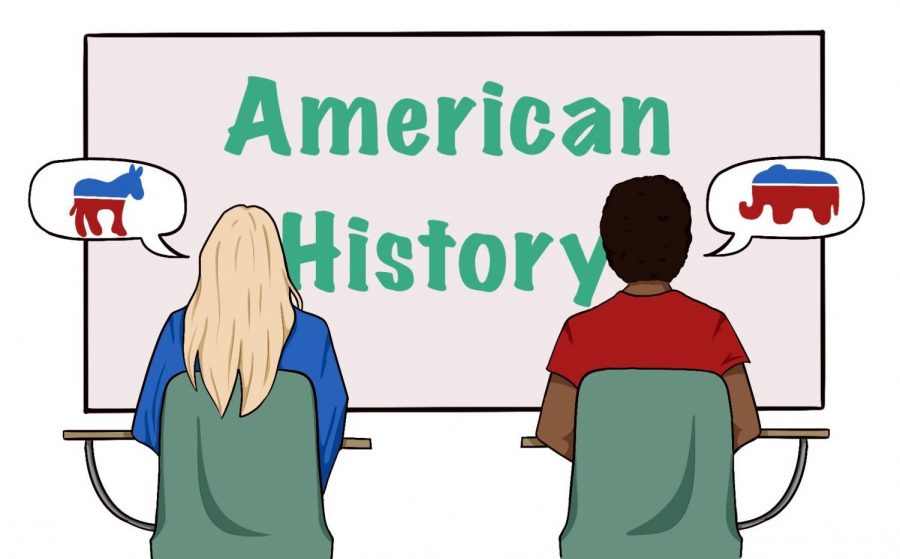Controversy In The Classroom
November 19, 2021
As the next generation of political leaders and voters, it is crucial that today’s teens learn to form and articulate their own opinions. Effectively engaging in political discussion is an essential skill for students to learn, contrary to the common belief that young people should stay out of the political realm.
Schools are inherently political institutions. Students and teachers are influenced by the political perspectives of their family, friends and the internet. From Advanced Placement (AP) United States History to Middle East Studies, politics play a significant role in class activities and curriculums.
Because every class is filled with students from various backgrounds with different beliefs, teachers must help students develop critical thinking skills. While some might argue that teachers sharing their political views might prompt more open discussion and inspire students to think critically, doing so instead makes students uncomfortable sharing their own opinions.
While politics are often considered sensitive topics, it is essential that politics occupy a place in an educational environment.
However, teachers should refrain from making opinionated political statements in class. As the leaders of class discussions, teachers must be receptive to all opinions. They should refrain from making jokes about a politician they dislike, for example, as this prevents the class from being inclusive. In an environment where teachers have authority over their students, a teacher’s assertion of their opinion may prevent students from expressing their own. Teachers’ neutrality is necessary to spark conversations that broaden students’ perspectives.
But a teacher refraining from expressing the details of their political beliefs does not mean they must cut out political discourse from their class. Doing so would enforce the idea that political beliefs should remain private. Instead, teachers must foster discussion without exerting too much influence on their students. In a partisan society where debate is the foundation of our government, encouraging class discussions can help students defend their opinions and broaden their view of the world. Teachers refraining from political discourse out of fear of offending their students enforces the idea that political beliefs should not be questioned. Rather than shying away from controversial issues, teachers should use them as learning opportunities. The key to positive classroom politics is to create a sense of equality.
With the exception of offensive opinions based on false information, teachers should let students know their beliefs are valued to cultivate acceptance.
While teachers’ neutrality and open-mindedness are important in developing students’ critical thinking skills, it should also be their responsibility to regulate classroom discussions and prevent them from getting out of hand. There is a distinction between leaving room for different political perspectives and tolerating hateful or disrespectful behavior. For example, indisputable topics such as human rights should not be up for debate nor should they be considered an inherently political topic. Instead, teachers should encourage students to think critically about political events or social phenomena.
Because politics extend past the realm of simple two-sided debates, staying open-minded expands one’s perspective of the world. Teachers should tolerate opposing arguments so long as such arguments stay in the realm of diplomatic, respectful discourse.
In an age where false information is easily accessible, young people must learn about politics in a social and historical context. Teachers play a major role in preparing students for the real world, and this starts with helping students feel their voices are heard and welcomed.































